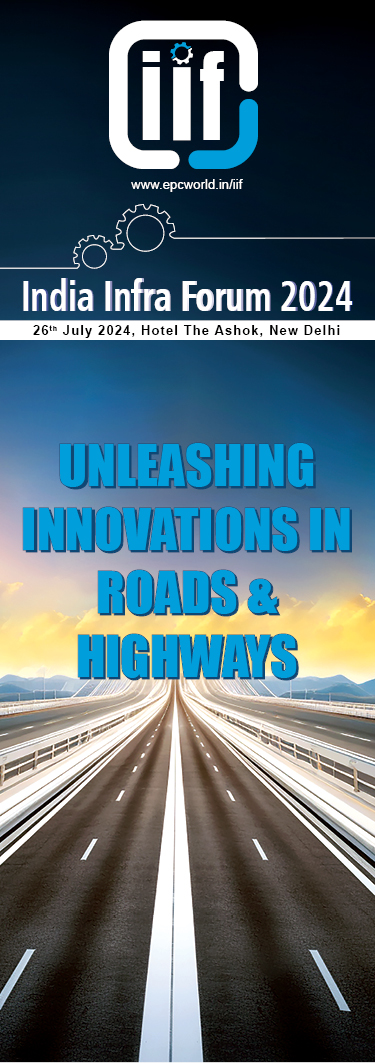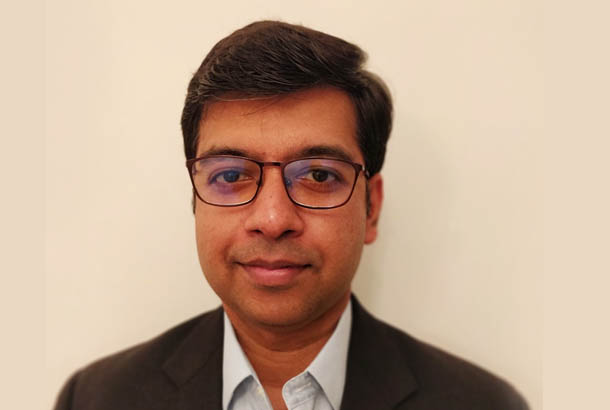What are your views on Government's approach towards the Smart City Mission and your role/contributions towards the same?
Many Indian cities are facing significant operational and sustainability challenges stemming from rapid urbanization and population growth. These include challenges in city administration, unexpected crises, infrastructure issues, environmental and safety concerns, and the expanding needs of citizens. The Government’s 100 Smart Cities Mission is geared towards meeting these challenges and we see a huge opportunity for Honeywell.
Honeywell is a global leader in the building technologies space, making homes, commercial, and industrial buildings safer, more secure, energy efficient, productive, and connected. In India too we are present across some of the largest mission critical facilities, government infrastructure, airports, stadia, metro stations, IT and hospitality, helping make these facilities intelligent, efficient, and connected. We have been partnering with the Indian Government’s Smart Cities initiative from the very beginning, and are present in multiple cities such as Bhubaneshwar, Aurangabad, Rajkot, and Faridabad, to name a few.We look forward to continue being a partner of choice for the Government, as more and more smart cities get added to the scheme.
Please share with us brief about your involvement in Smart City project(s)?
Honeywell’s smart city systems serve more than 70 cities worldwide, connect more than 100,000 IoT sensors and touch the lives of more than 100 million people. In India, we won the first ever Smart City project in February 2015 in Bhubaneswar, Odisha. Since then, we have gone on to win many such projects from the Government of India. Some of these are Bhubaneswar Smart City was our first city surveillance project, and we have been partnering with Odisha Police in the state’s capital city. For this project, Honeywell developed a citywide surveillance system, which helped boost security arrangements, prevent crimes, maintain law and order, and control traffic. Bhubaneswar was among six cities in Odisha that sought inclusion in the Government of India’s Smart City scheme, and Honeywell technologies enabled ‘smart safety’ in the city. The surveillance system includes integrated closed-circuit televisions (CCTVs), automatic number plate reading (ANPR) cameras, and command and control center. Cameras and digital video recorders (DVR) have also been installed on police vehicles.
In 2015, Honeywell India secured its second largest integrated city surveillance project, spanning 823 locations across 11 cities in state of Madhya Pradesh. The project included installation of 4,200 cameras including ANPR cameras, and monitoring via a command and control room, supported by software and servers across 80 locations and surveillance systems on public call response (PCR) vans.
In May 2016, Honeywell successfully completed a citywide installation of surveillance and emergency response technology in Ujjain to support Madhya Pradesh police department’s work in crime prevention, and traffic and crowd management during the ‘Simhastha Kumbh’ event — one the world’s largest holy gatherings that attracted approximately 70 million Hindu devotees. The project covered 134 locations and major checking bays connected to Ujjain with CCTVs, and ANPR cameras. Using a command and control center, the system integrated emergency response and traffic management systems for the Madhya Pradesh police. As part of the project, 667 video cameras were installed at the Mahakaal Temple. The project covered traffic and crowd management at checking bays, ghats, temples, and ashrams. The system gathered real-time data to help authorities react to any incident and monitor areas for disturbances.
In 2017, more than 450 integrated CCTVs and WiFi were placed at 13 key public places in Rajkot, supported by software and servers across 107 strategic locations to boost security, prevent crimes, maintain law and order, fine traffic violators, control traffic, and effectively monitor the city. The project covered a citywide installation of CCTVs, including ANPR cameras, and monitoring via two command-and-control rooms. In 2018, Honeywell successfully implemented an integrated smart city command and control center as part of the Rajkot Eye-Way project. Acting as the backbone for Rajkot Smart City, the integrated command and control center helps monitor crime, traffic, environment, solid waste and water disposal etc, and provides a unified view of the city to the authorities. It helps to optimize operations, improve delivery of services, and raise the living standards of the citizens. In 2017, we also won AURIC in Aurangabad, Maharashtra, where we installed a surveillance project across the city.
What are the callenges faced in the process & strategies to tackle the same?
One of the key challenges in developing a smart city is to bring all stakeholders on the same page – from the strategy phase through project planning, and coordination among various departments for smooth execution. The success of a smart city is determined by how the needs of various stakeholders – citizens, administrators, and service providers – are considered while developing a city. Success also depends on how these needs are addressed, with a clear accountability matrix defined. Smart cities are built on the foundation of connected technologies. It is important to seamlessly integrate disparate systems and technologies to make cities smarter, safer, and more liveable. Citizen awareness and engagement too are critical to make cities smarter. Another important consideration is earmarking tenable budgets and tying up funding for smart city projects. Equally important is the need to keep an eye on the city’s environmental sustainability. Lastly, with increased adoption of digitalization, including IoT and IIoT, it is imperative to keep critical infrastructure safe from cyber attacks, and have in place a strong and updated cyber defence mechanism.
What are the key factors or determinants defining a Smart City?
As we gradually move towards complete digitization, the need for developing smart cities is growing exponentially. Smart cities make the task of managing the city’s infrastructure and services easier for administrators, while also enhancing the standard of living for their citizens. Some of the fundamental requirements of a smart city are:
- A smart city needs to have the right infrastructure – be it roads, traffic management, healthcare and hospitals, or civic amenities such as water supply and waste management services. A smart city also needs to have uninterrupted power supply and good telecom infrastructure to support connectivity and digitization.
- There is no trade off when it comes to safety and security – not only for the citizens but also for existing and upcoming infrastructure. With technology being at the forefront in today’s world, it is also essential to ensure data safety and protection against cyber attacks.
- Smart cities needs to be built keeping sustainability principles in mind. A green environment, clean water, and clean air should go hand-in-and with the principles of recycling and reuse. Adoption of clean technologies and renewable energy sources will ensure the sustainability of such cities.
What are the tools/technologies/developmental approaches contributed from your end?
Honeywell has the best technology solutions for making cities smarter. We are also continuously striving to enhance our offerings in the smart cities space. Take for example our recent strategic investment in Trinity Mobility, which allows us to expand our smart cities capabilities. This has given us access to Trinity’s Smart City solutions that integrate information from various systems across a city in a common interface and allow operators to better assess, operate and manage the city’s connected infrastructure. The combined capabilities of Honeywell and Trinity will allow cities of all sizes to improve services and provide a better experience for their citizens. It will also allow Honeywell to more fully partner with cities that are expanding their smart city deployments or integrating new systems.
We also announced our Smart Cities IoT solution, called the Honeywell City Suite, which can seamlessly aggregate information from traffic, environment, parking, emergency services, safety and security, and utilities – among other areas – in a single, unified view. It helps to asset with the increasing demand for city services and resources.
What are the future prospects and your mission towards exploring opportunities from the Mission Smart City?
As Per the Oxford Economics’ Global cities report[1], between 2019 and 2035, 17 of the 20 fastest-growing cities in the world will be from India. As megacities and urban population grow rapidly, overcrowding and security uncertainties start to emerge. Overcrowding, traffic congestion, security concerns, as well as rising demand for utilities will drive the market for intelligent solutions and investment in smart technologies. A big focus of these investments will be in sensors, internet of things (IoT) and cloud-based platforms that can capture data, analyze it, and provide real-time information and insights that can boost safety, security and energy efficiency. These technologies help create actionable insights that city authorities and municipalities can use to improve their situational awareness and create productive environments that people and businesses want to call home. For Honeywell, India will continue to be a strategic high growth market, driven by Government initiatives such as 100 Smart Cities, Digital India, Make in India, and Atmanirbhar Bharat.
[1]https://economictimes.indiatimes.com/news/economy/policy/view-indias-urbanisation-challenges-and-the-way-forward/articleshow/79443872.cms?from=mdr






